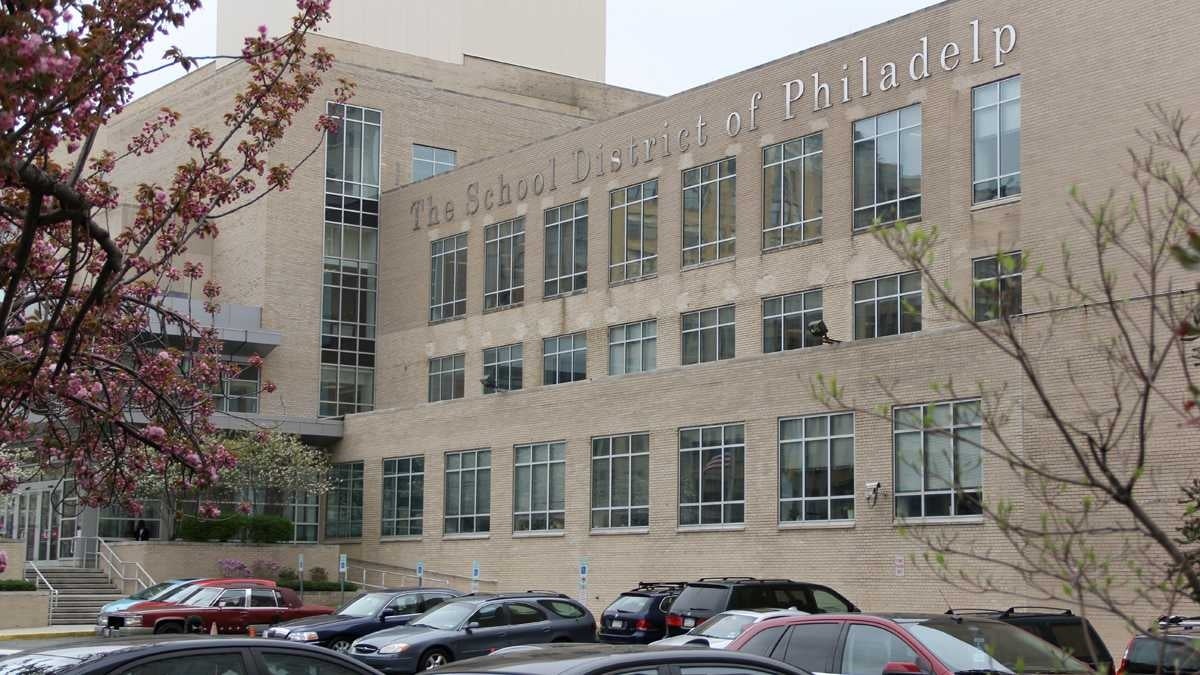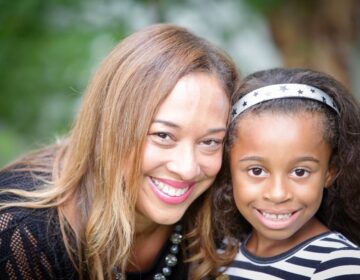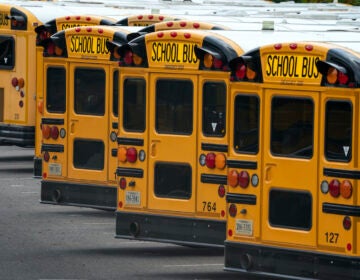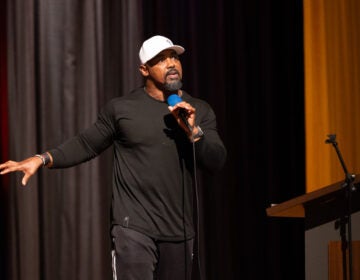Philly schools must prioritize trauma-informed learning

Philadelphia School District headquarters at Broad and Spring Garden streets. (Emma Lee/WHYY)
Powerful and surprisingly prevalent horrors are blocking access to education and ravaging children’s lives. Sadly, they remain the elephant in the classroom: adverse childhood experiences.
Adverse childhood experiences include physical, sexual, and emotional abuse, including bullying; physical and emotional neglect; a missing parent, due to separation, divorce, incarceration, or death; witnessing household substance abuse, violence, or mental illness; and witnessing environmental violence.
Developmental (or childhood) trauma after these adverse experiences often goes unidentified or misunderstood, and is often worsened within school systems. Experts call it a crisis.
Trauma during development is especially heinous. Some adults normalize the pain and fear of the injured child, thinking they’ll get over it. Actually, it’s the opposite. Young children have fewer coping mechanisms, and their immature brains are still developing. The impacts of trauma are greater on the still-developing brain.
Students deciding to take their own lives in Philadelphia is an on-going, crushing indictment of the school district.
Trauma impacts learning and schools, via its laser-like effects on the physical structure of the brain. It damages cognition. The specific changes to brain architecture damage children’s memory systems, their ability to think and organize multiple priorities, and hence to learn, particularly literacy skills.
The changes to the trauma-impacted children’s neurobiology predispose them to hypervigilance and suspicion, leading them to misread social cues. Their aggressive, hair-trigger defenses are often set off by deep fear memories outside of their explicit consciousness.
Adults’ view of students’ seemingly illogical, or oppositional behavior, is often one of shock, confusion, frustration, and maybe anger. If we act on our uninformed views, we risk re-triggering more of the child’s trauma, and even more aggression.
In the spirit of zero tolerance, schools often blame and punish students for logical behaviors connected to their trauma-based injuries. Punishment can seem appropriate in the moment, but does not address the child’s injury. Instead, the data says, it feeds the school-to-prison pipeline.
If schools are to be guided by data, the data says more than two-thirds of children — of all incomes, all colors, all social levels, all educational levels — experience at least one adverse childhood experience. It is all of us.
CDC scientists found that even in beautiful, suburban San Diego about one-fourth of middle class, mostly white, college educated, working folks with medical insurance had three or more adverse childhood experiences! The lifelong impacts are shocking and alarming.
Three or more ACEs is significant because it correlates with doubled risk of depression, severe obesity, drug abuse, lung disease, and liver disease. It triples the risk of alcoholism, STDs, and teen pregnancy. There is a 5-fold increase in attempted suicide.
Nevertheless, the School District of Philadelphia does not train or fund or allocate staff to recognize and respond to the devastating impacts of developmental trauma. Three or four district staff, based downtown at headquarters, is a shameful, inappropriate investment in addressing the massive scourge across Philadelphia, with more than 200,000 school children.
District leaders and staff, given insufficient training and resources, can fail to connect the curse of developmental trauma to behavior and academic learning. So the crisis continues.
The least of the impacts is continuing damage to students’ cognitive functions. In turn, their self-confidence is shattered, further damaging learning “results” and the educational mission. Trauma-impacted children’s natural, aggressive defenses can then be escalated more by uninformed adults. Next, frustrated learners and families lose trust in their school. All this, in turn, dissolves public confidence in public education, which finally, in a perfect storm, destroys public willingness to invest in public education.
Meanwhile, as a result of low-priority, and unidentified developmental trauma, all SDP children are denied equal access to their education.
“Denied access” includes SDP students who are trauma-impacted and then the rest of our students in the same classrooms trying to learn in the midst of frequent chaos around their trauma-impacted peers. Ultimately all of us are damaged, including all students’ families and the citizens of Philadelphia.
The SDP’s inaction and ignorance aggravates and intensifies children’s injuries within the very system accountable for their safety and growth. It is crucial to re-prioritize the scarce funds in public education towards system-wide, trauma-informed practice, driven by a vision of equity and educational process leadership in Philadelphia.
SDP leaders must be held accountable for their inaction in the interim. They have clear data and strategies that can help stop further damaging trauma-impacted children. Doing nothing is unethical and morally wrong. It is time to stand up and indict SDP leadership.
—
Daun Kauffman teaches in North Philadelphia public schools and blogs at LucidWitness.com. He lives in Hunting Park where he has served the children and families for 15 years. Kauffman has an M.Ed. from Temple University and an MBA from Harvard University Graduate School of Business.
WHYY is your source for fact-based, in-depth journalism and information. As a nonprofit organization, we rely on financial support from readers like you. Please give today.





